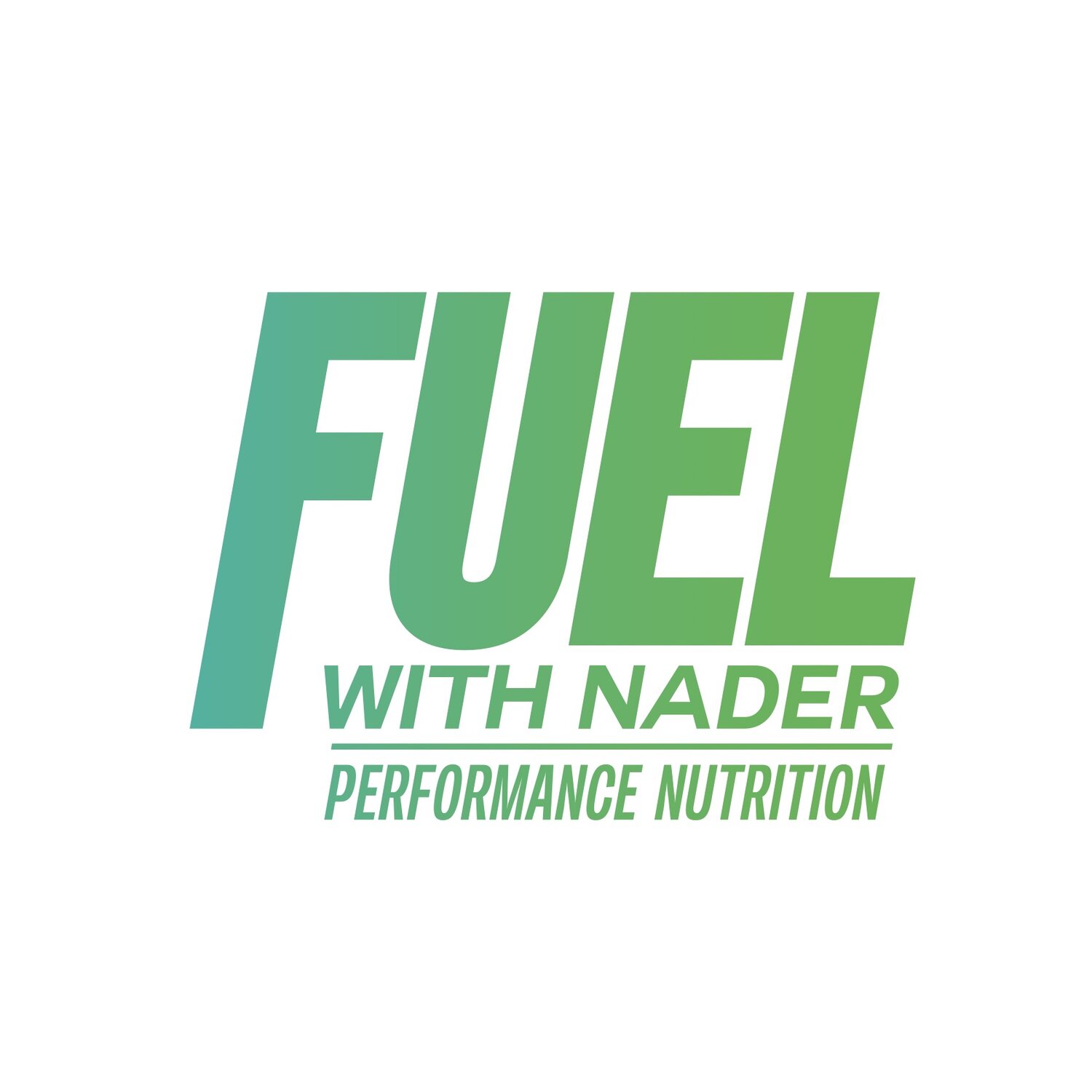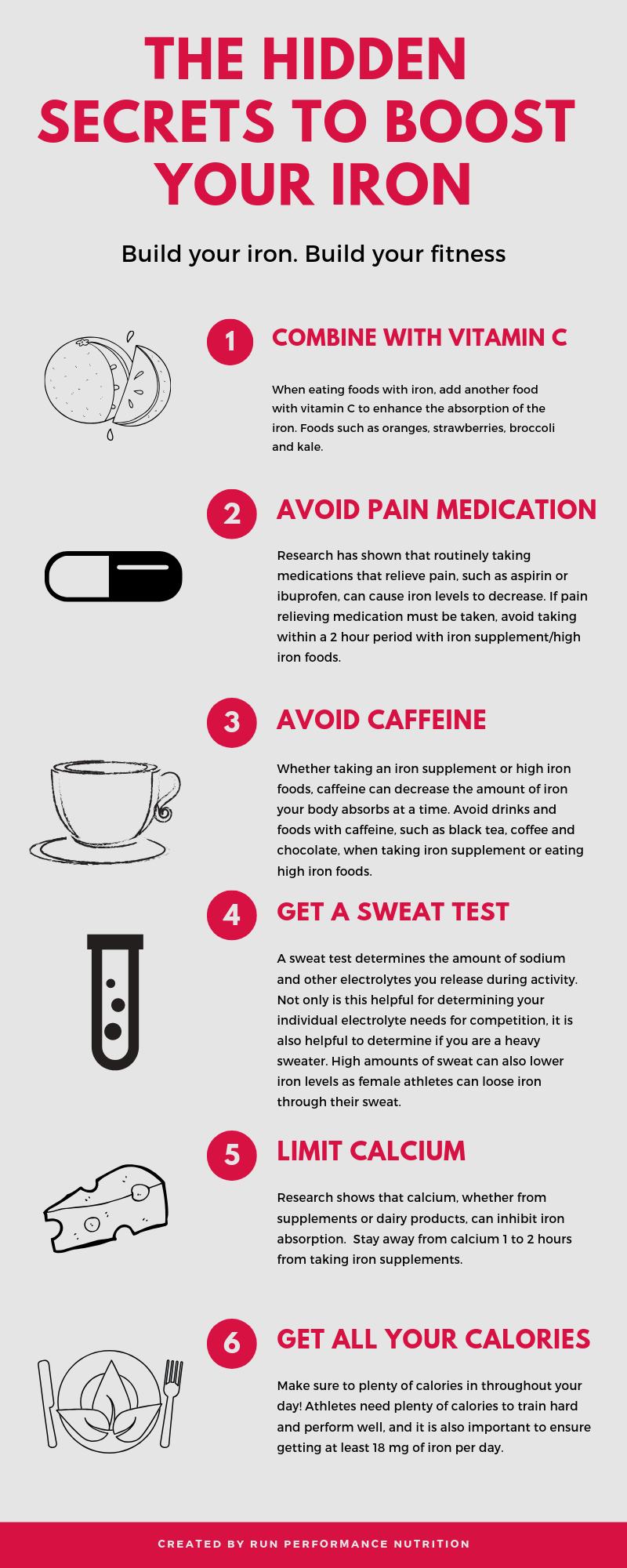Boost Your Athletic Performance: 6 Ways to Boost Your Iron
Recently, I have had a lot of conversations with female athletes who struggle with low iron levels, which has translated into decreased athletic performance. Now traditionally, female athletes are the focus of iron as their levels are more variable throughout training, but male athletes struggle with low iron levels as well. So this is for ALL athletes out there!
First off, let’s go through some basics.
What is Iron?
Iron is a mineral that is consumed in our diet that’s main job is to transport oxygen through our bloodstream in order that our muscles can produce energy. Iron can also help clear out carbon dioxide.
There are 2 types of iron found in our food: Heme and Non-heme iron. Heme iron is found in animal products, such as meat and eggs, and non-heme iron is found in plant-based foods. Human bodies are better at absorbing the heme iron, rather than the non-heme iron, which is why many vegetarian and vegan athletes supplement with iron. You can increase the amount of non-heme iron absorbed though! Keep reading :)
What is Iron deficiency anemia?
This is when you have low levels of iron in your blood, meaning less oxygen gets throughout the body. Symptoms of iron deficiency anemia are low energy, pale skin, headaches and dizziness. For athletes, you may experience the low energy, especially in build weeks, which can be masked by the increase in mileage and work put in during these weeks. Another common symptom is inability to maintain body temperature, so if you are someone that tends to be cold all the time, I recommend getting some blood work done.
How can I prevent anemia?
Eating lots of iron-rich foods throughout ALL of training to ensure that you are absorbing all the iron you need daily. Also, ensure that you are eating enough during training. A common cause of low iron levels is under eating for many athletes.
FACT: The period of recovery after a high volume training cycle is the best time to increase your iron.
How much iron should I consume a day?
Males over 19 years old 8 mg per day
Females over 19 years old (not pregnant) 18 mg per day
And to give you an idea of what that looks like, here is a day full of 18 mg of iron.
So now we have gone over the basics. Now to those secrets…
Whether you are taking an iron supplement or eating high-iron foods, all of these secrets will help you gain more energy and get back to training at your fullest potential.
1) Combine with Vitamin C
As iron can be tricky to absorb in the body, there are enhancers to help absorb the iron in your body. Vitamin C is one of those enhancers. Choosing foods such as oranges, strawberries, broccoli and kale help increase the amount of iron you absorb from both heme and non-heme iron.
2) Avoid Pain Medication
We sometimes get aches and pains. We sometimes have inflammation that we want to use pain medication to decrease. Common in athletes, especially at high volume training periods, it is important to remember to avoid taking the pain medications, such as aspirin or ibuprofen, around the time of taking an iron supplement OR eating high iron foods.
3) Avoid Caffeine
Another inhibitor to absorption of iron is caffeine. Research has shown that caffeine can decrease the amount of iron absorbed at a time. Foods to avoid are black tea, coffee and chocolate.
4) Get a Sweat Test & Electrolyte Loss Test
A sweat test determines the amount of fluids, sodium and electrolytes you release during an activity. Having this information not only helps you gain a personalize hydration plan, but also provides you with a sense of how much iron is lost. Some iron can be lost through seat and urine due to stress within training, so knowing if you are a heavy sweater is key to determining how much iron is needed for you during training.
Interested in getting a sweat test? Schedule one today!
5) Limit your Calcium
Another inhibitor to iron, calcium has shown to decrease the amount of iron absorbed when taken together. Whether you are taking a supplement or eating the high-iron rich foods, stay away from calcium at least 1 to 2 hours to avoid hurting your iron absorption.
6) Get all Your Calories
As athletes, we need plenty of calories to keep us moving during training, especially those high volume training days. Also having plenty of calories from a well balanced diet ensures that you are getting plenty of iron daily. Like the sample meal plan of high iron foods? That 3 meals and 2 snacks are over 2200 calories to fuel any endurance athlete through the day.
These 6 secrets will have you boosting you iron levels in no time.
Questions on iron, anemia, blood work or how to boost your iron?
Schedule a consultation today because I would love to help your nutrition unlock your athletic performance.








